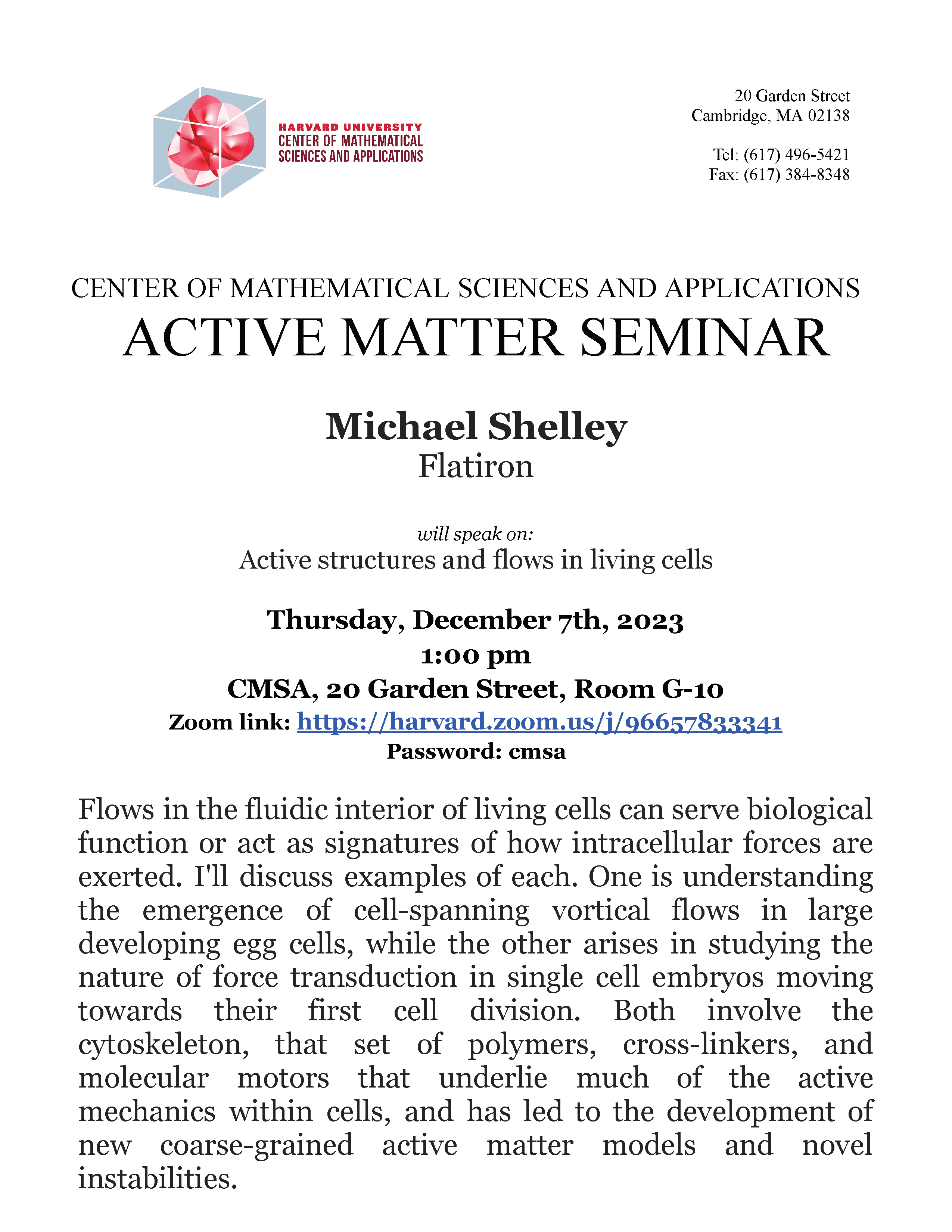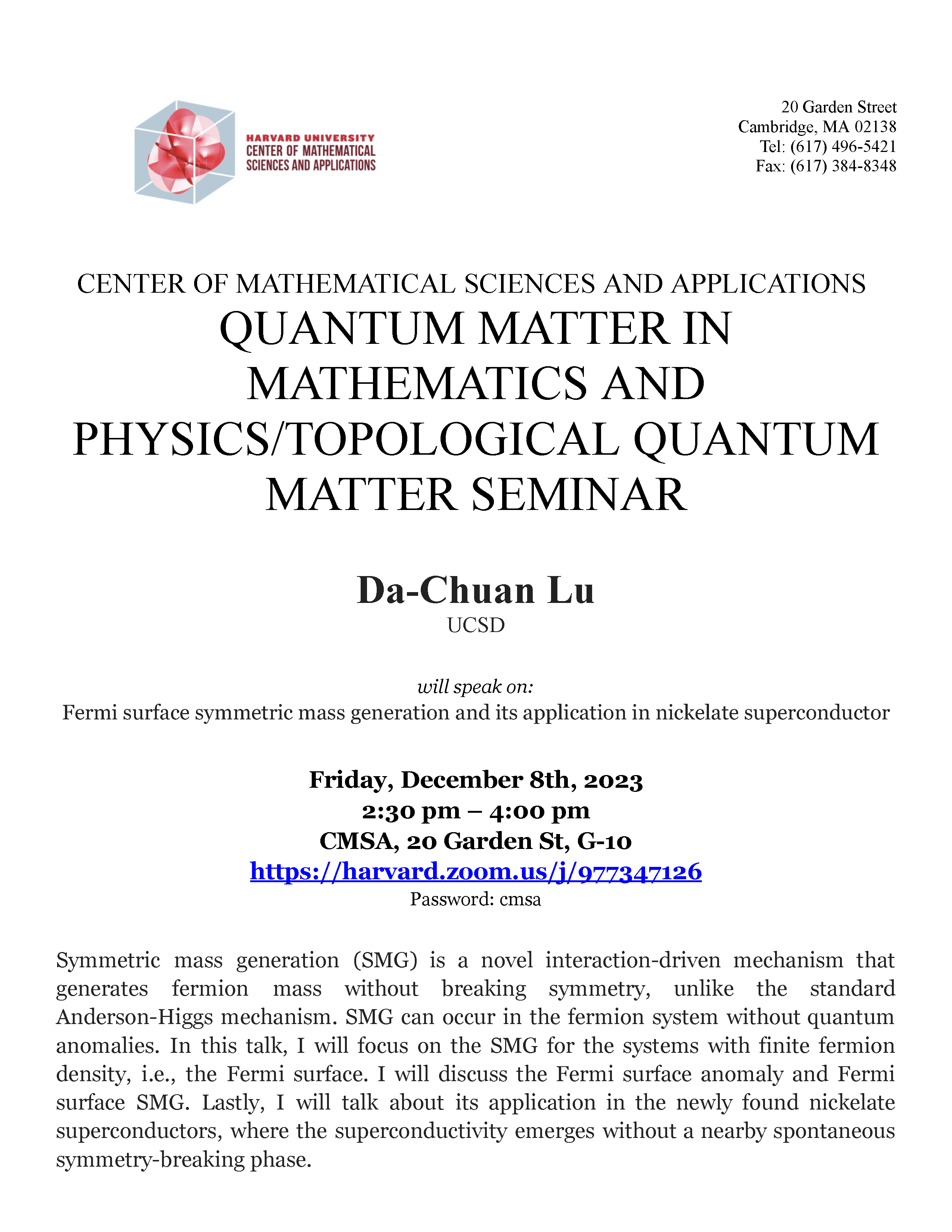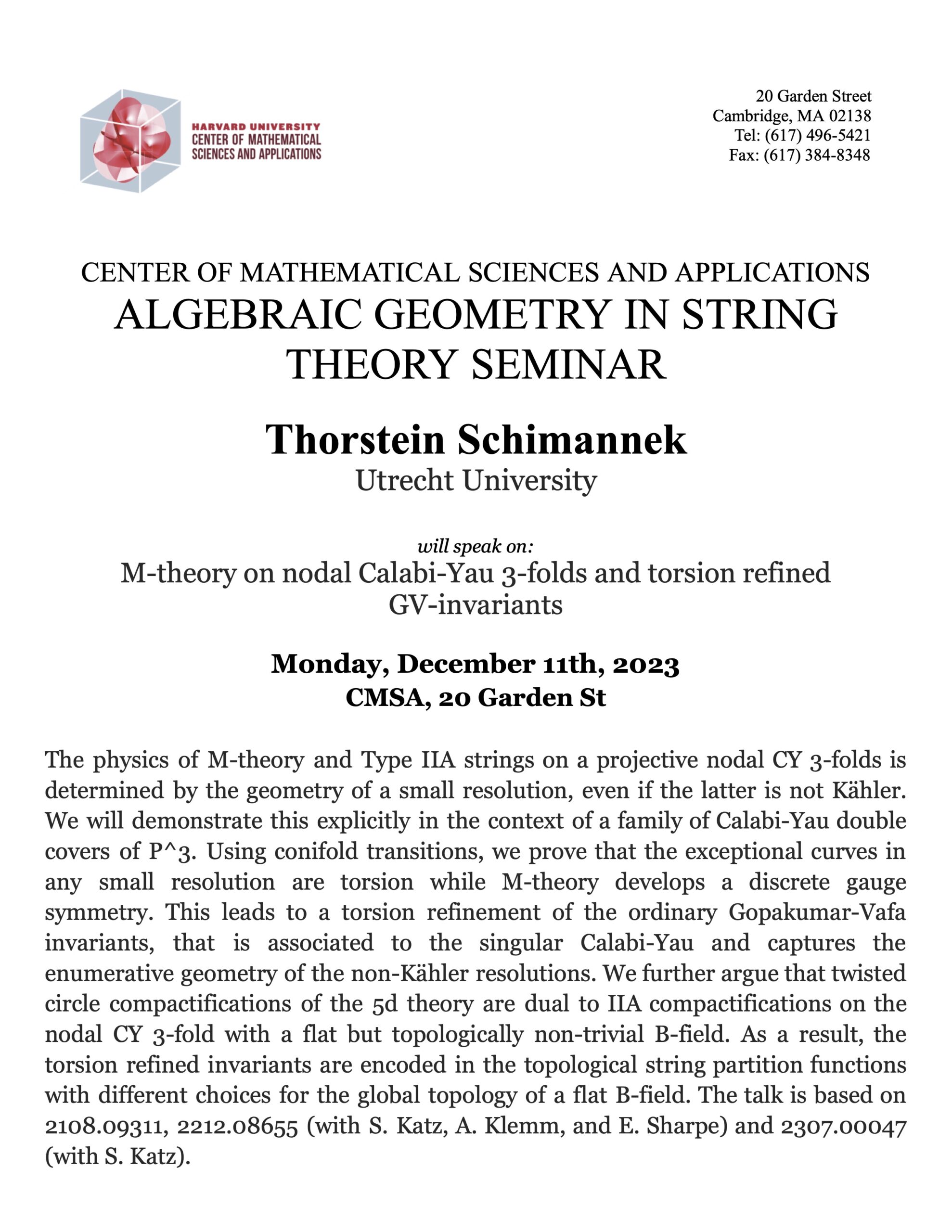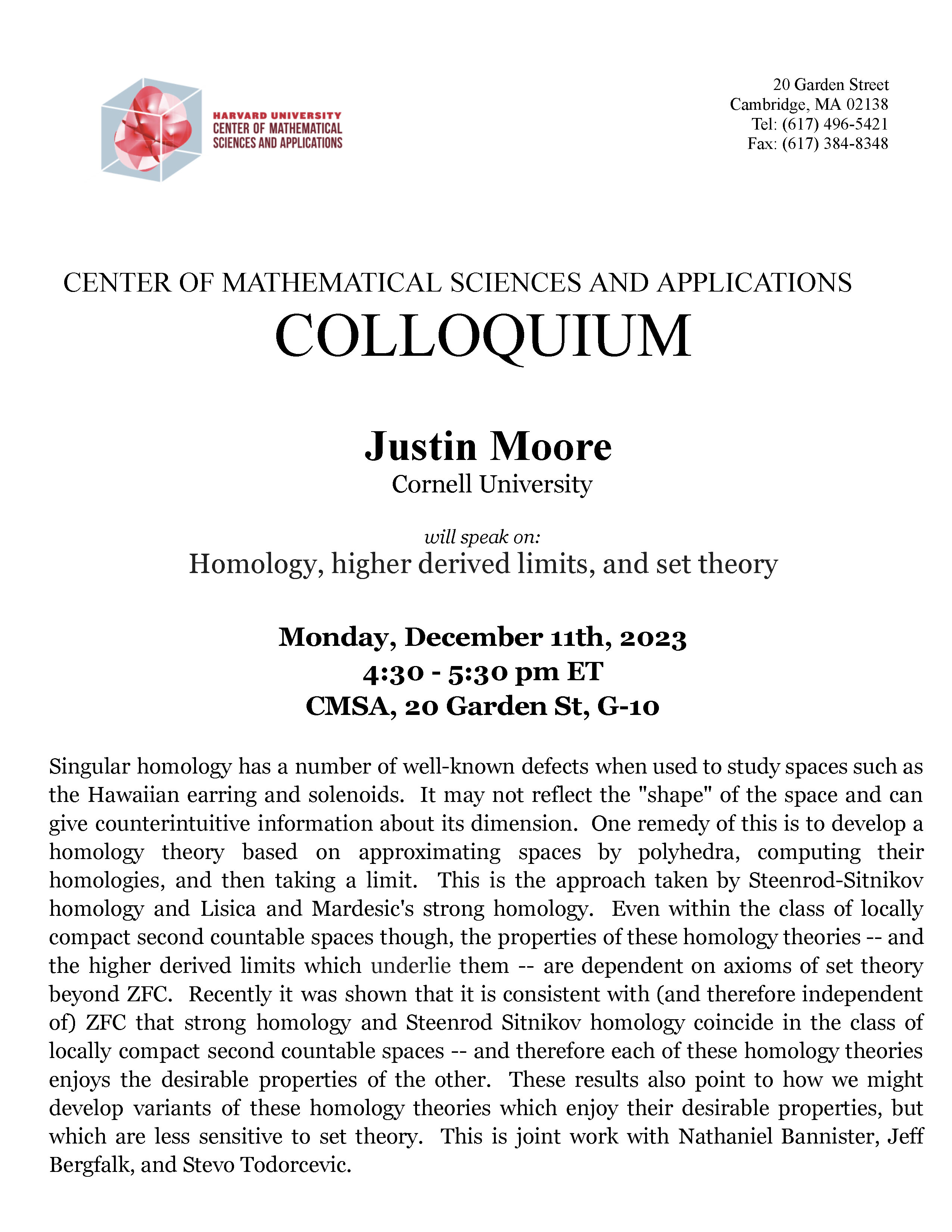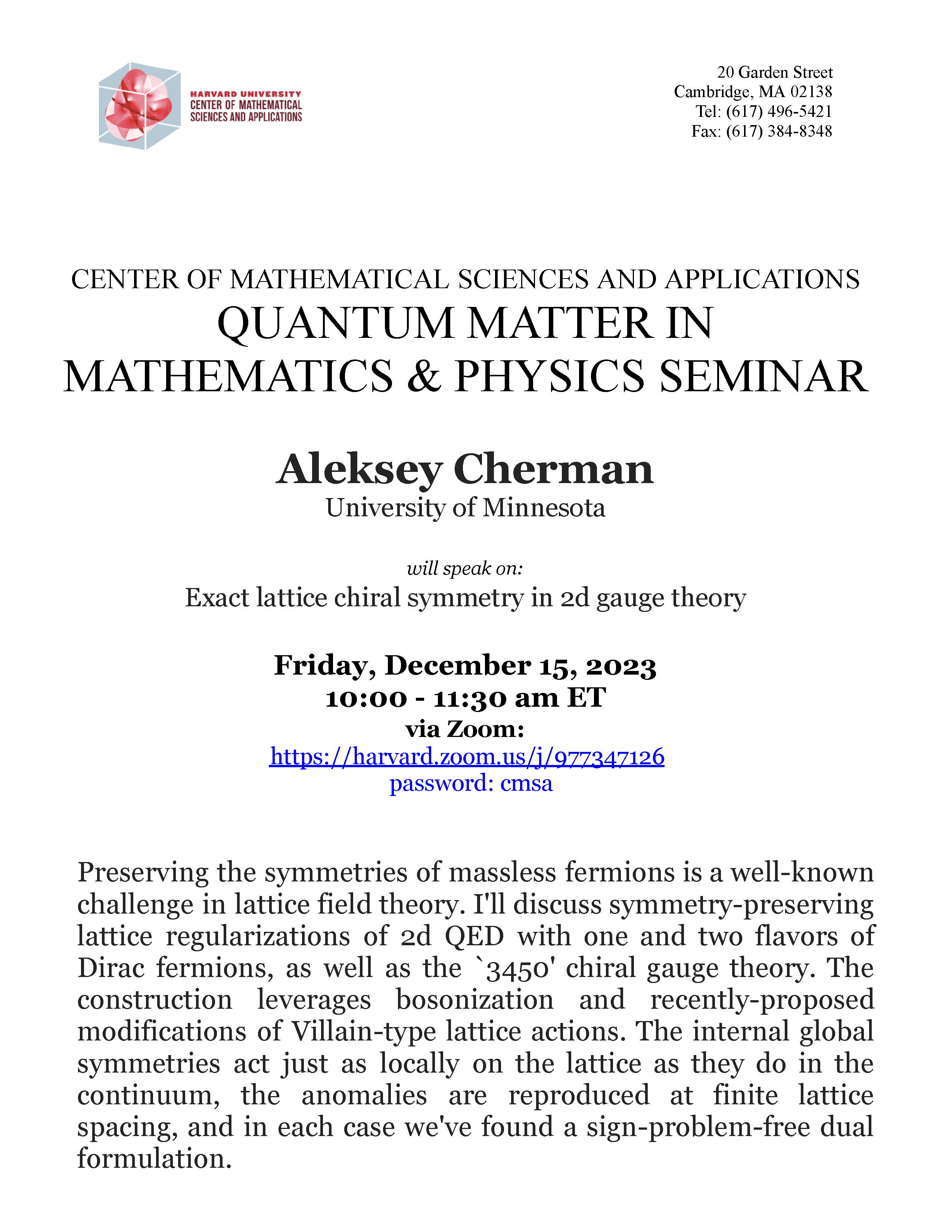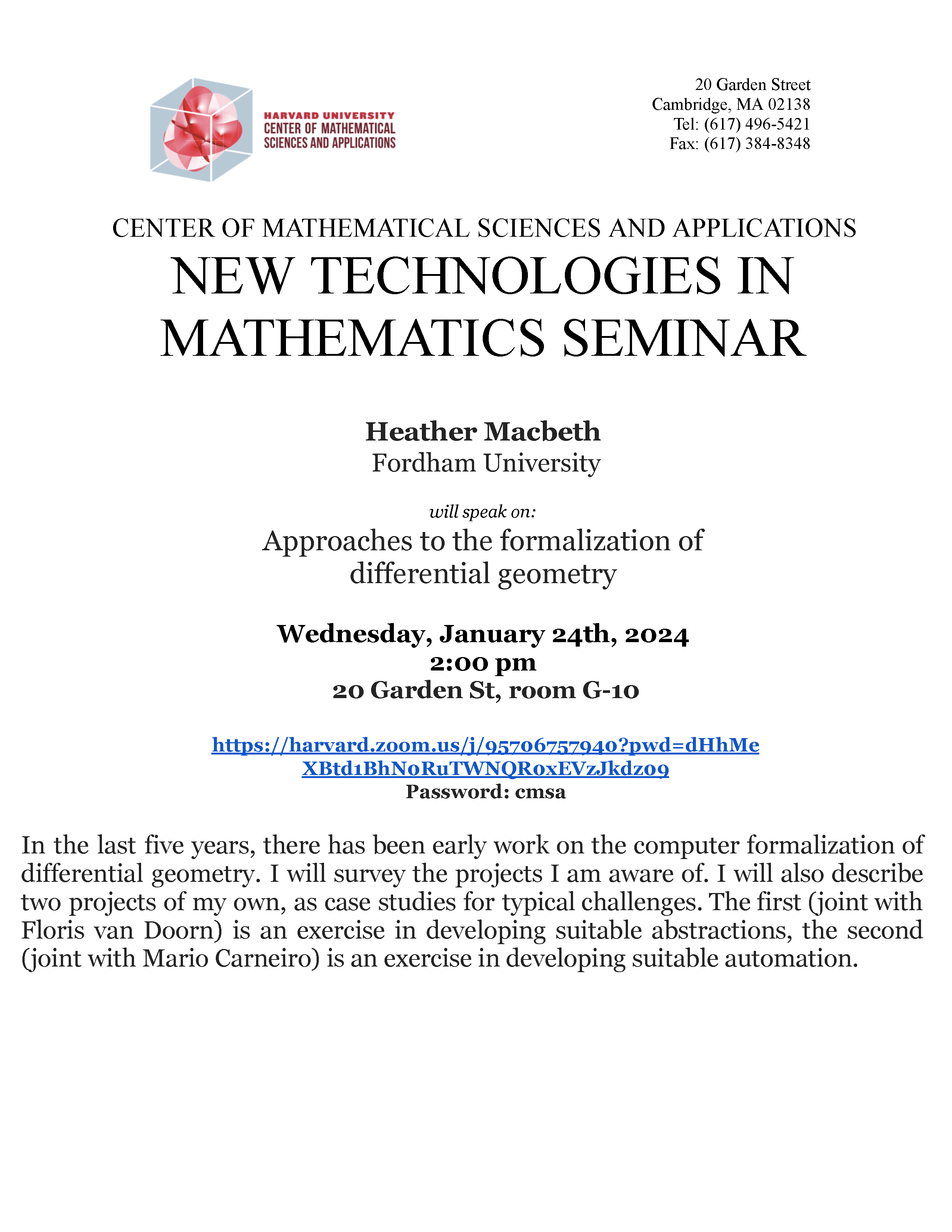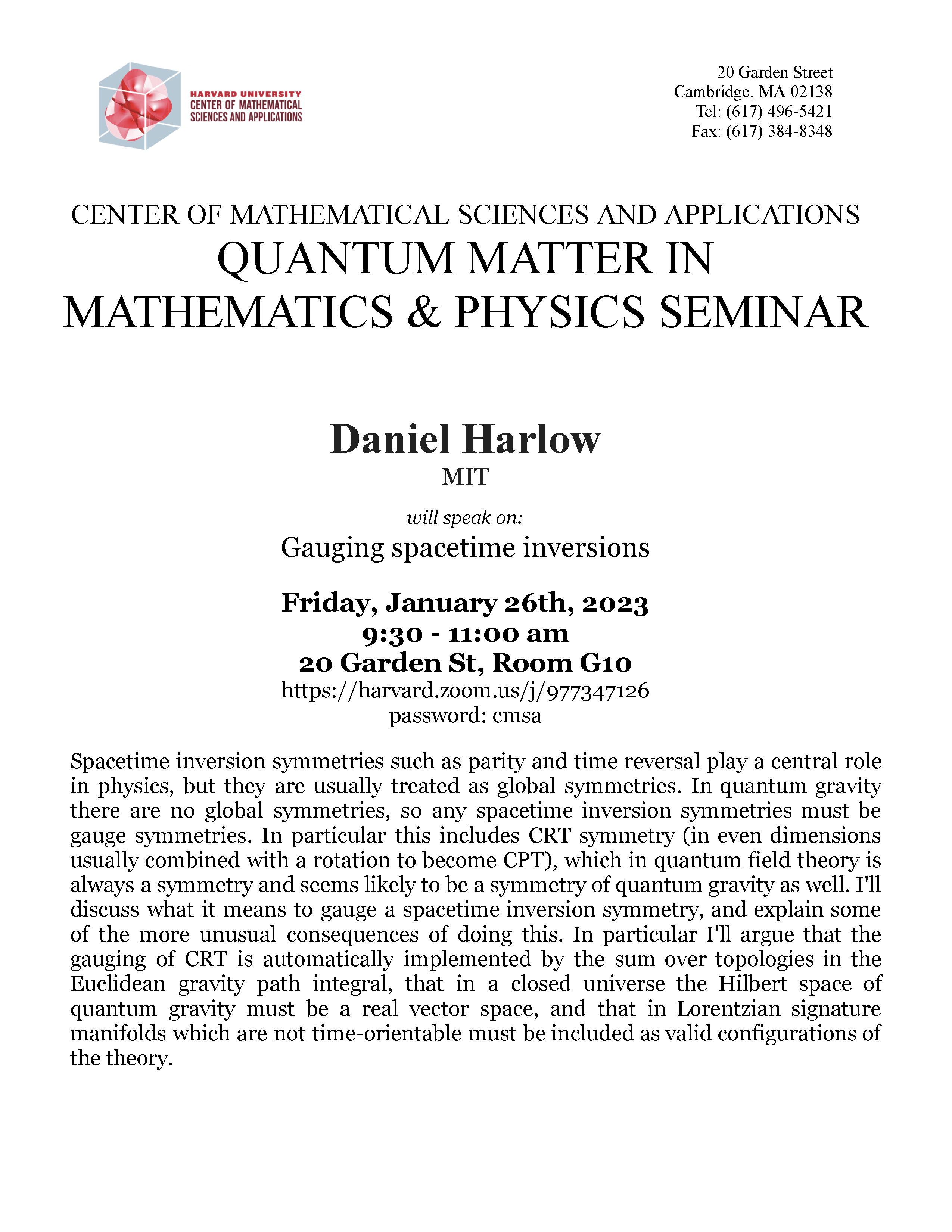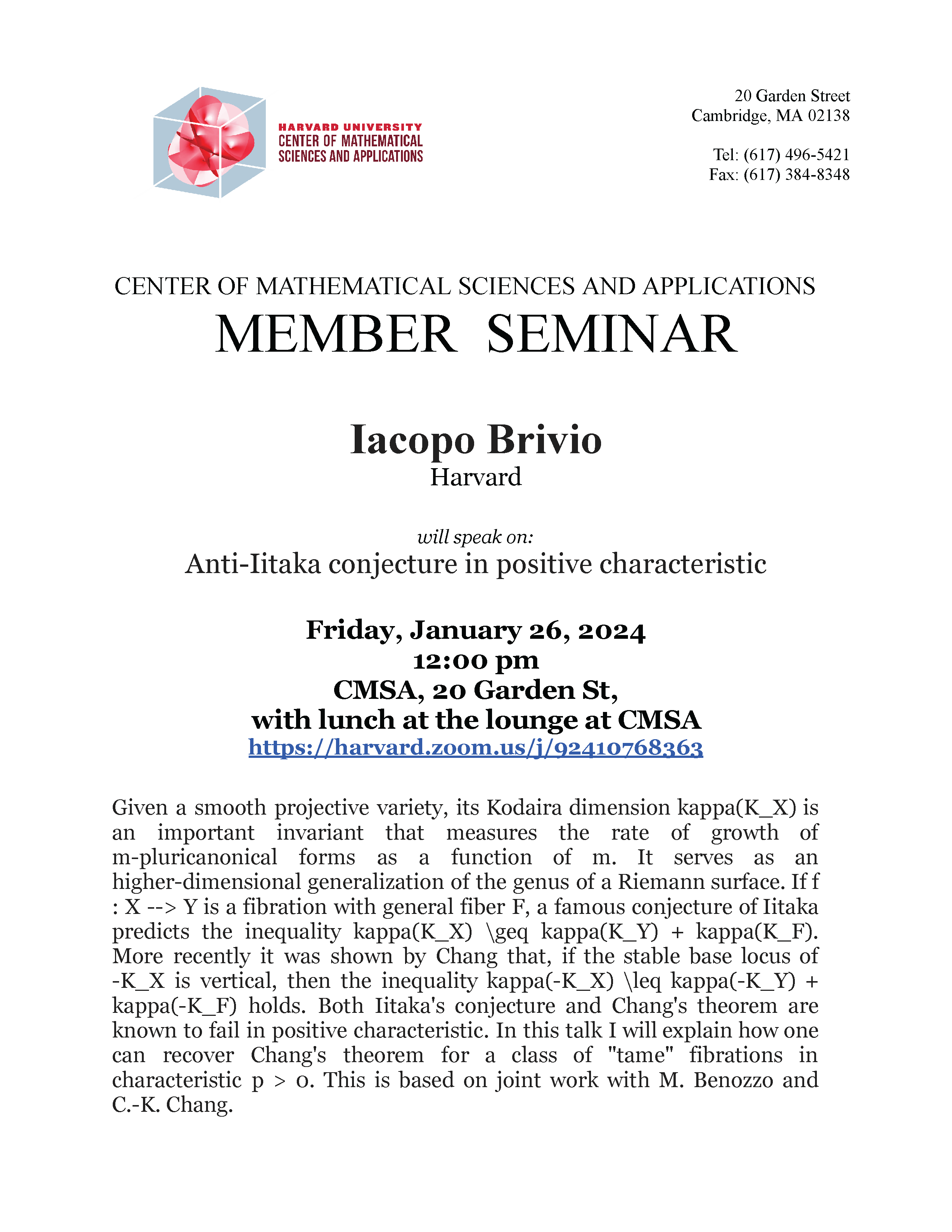CMSA Q and A Seminar 12/5/2023
Common Room, CMSA 20 Garden Street, Cambridge, MA, United StatesCMSA Q and A Seminar Speakers: Mike Douglas (Harvard CMSA) and Anurag Anshu (Harvard Computer Science) Topics: Mike Douglas: What are scaling laws in deep learning? Anurag Anshu: What's the difference between classical information theory and quantum information theory (or classical computation vs quantum computation)?

